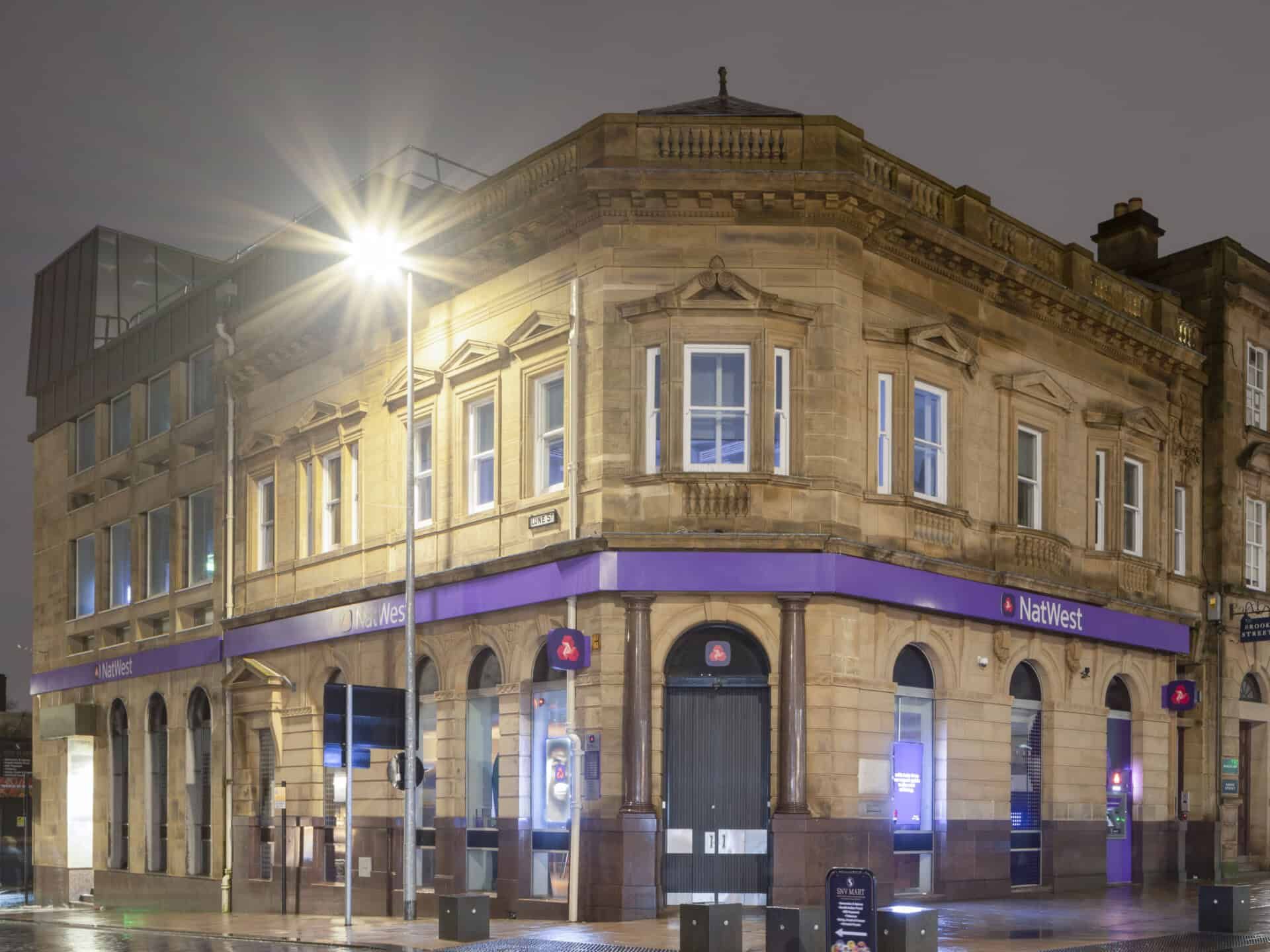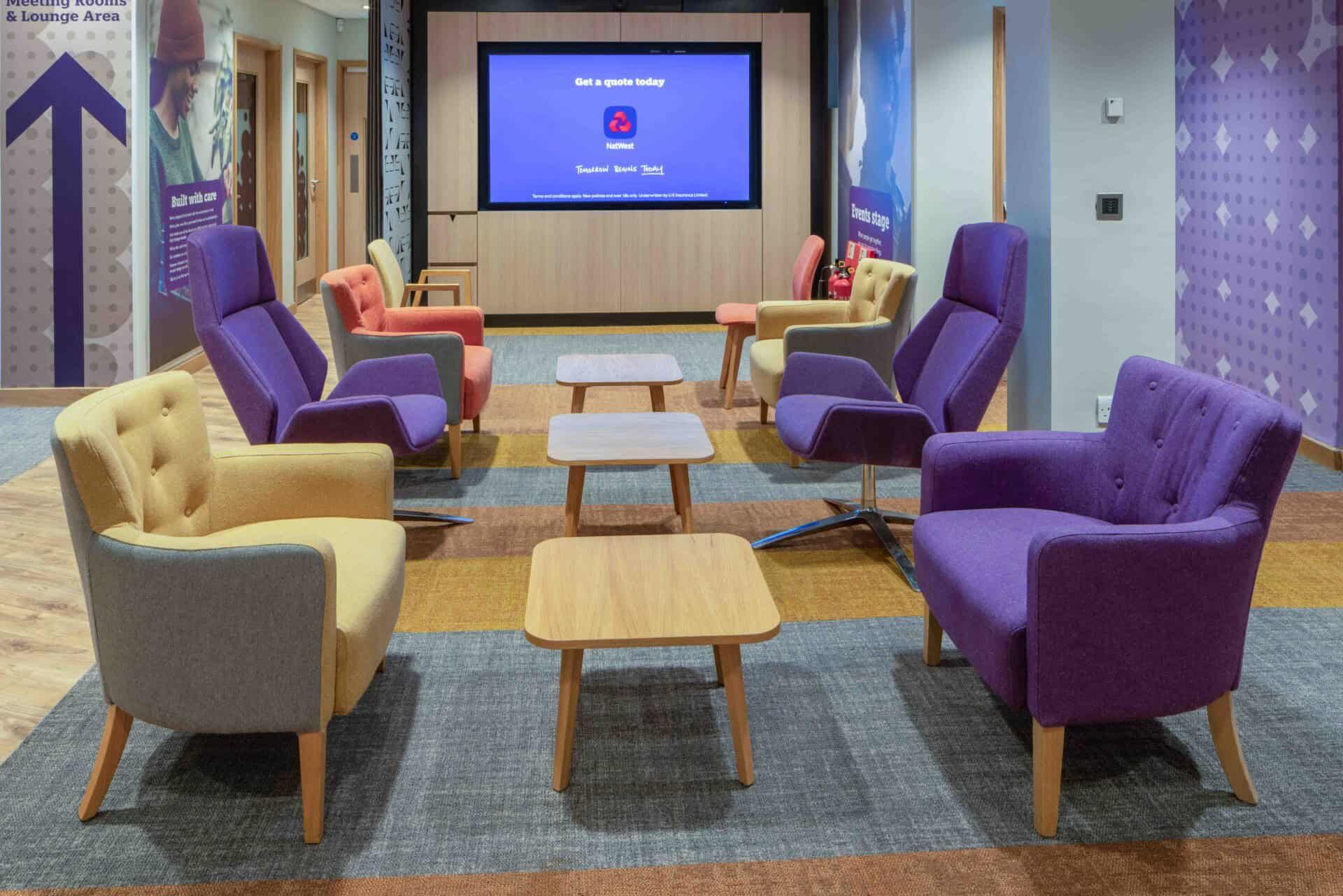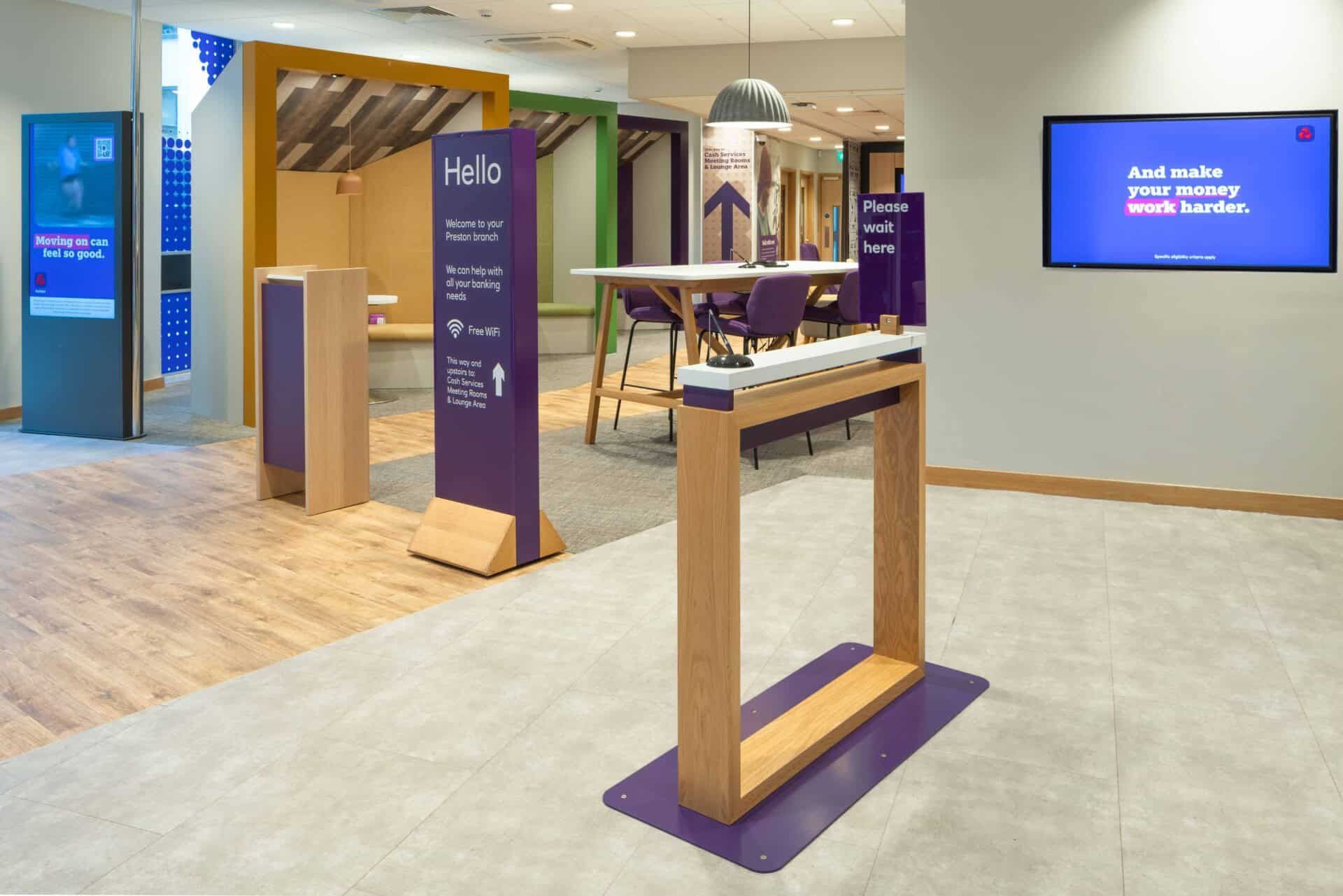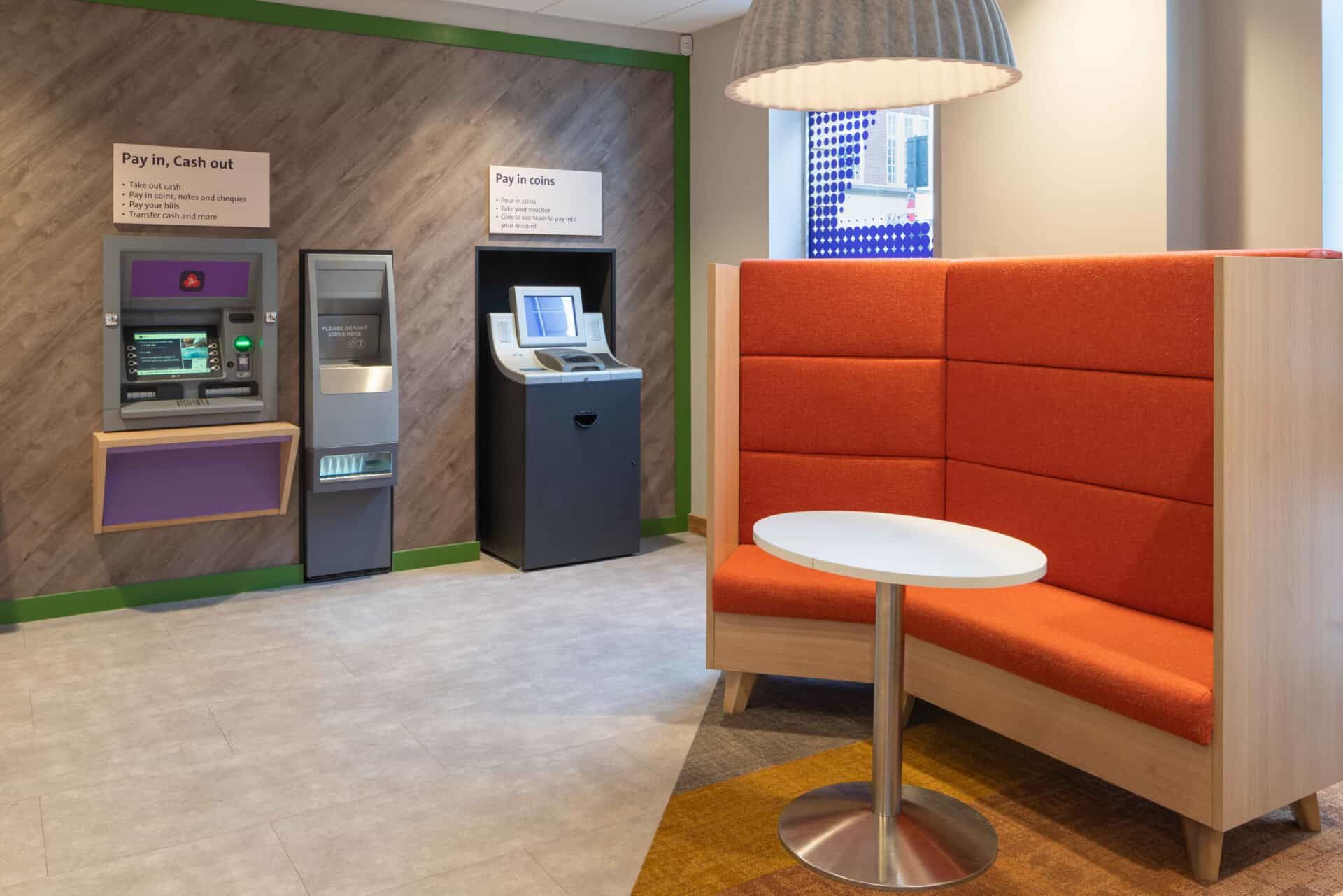This website uses cookies so that we can provide you with the best user experience possible. Cookie information is stored in your browser and performs functions such as recognising you when you return to our website and helping our team to understand which sections of the website you find most interesting and useful.
NET ZERO RETAIL FIT-OUT
We developed a strategic roadmap for achieving net zero carbon across the retail estate of NatWest, one of the UK’s biggest banks. Our approach, which embedded sustainability into NatWest’s branch refurbishment programme, has already delivered significant carbon reductions, setting a new standard for sustainability in the retail banking sector.
The core objective of the project was to assess and improve the carbon performance of NatWest’s retail units. By integrating whole life carbon assessments (WLCAs) with SKA assessments during the fit-out of units, we established a comprehensive understanding of carbon impacts. We also identified core sustainability criteria, achievable on any project regardless of size, scale or value, to enable NatWest to improve carbon performance and secure more SKA Silver and Gold accreditations.
At a glance
- ClientNatWest Group
- ServicesSustainability, Green Building Accreditations, Net Zero, Climate Action and Carbon Management
- sectorRetail
- LocationUnited Kingdom
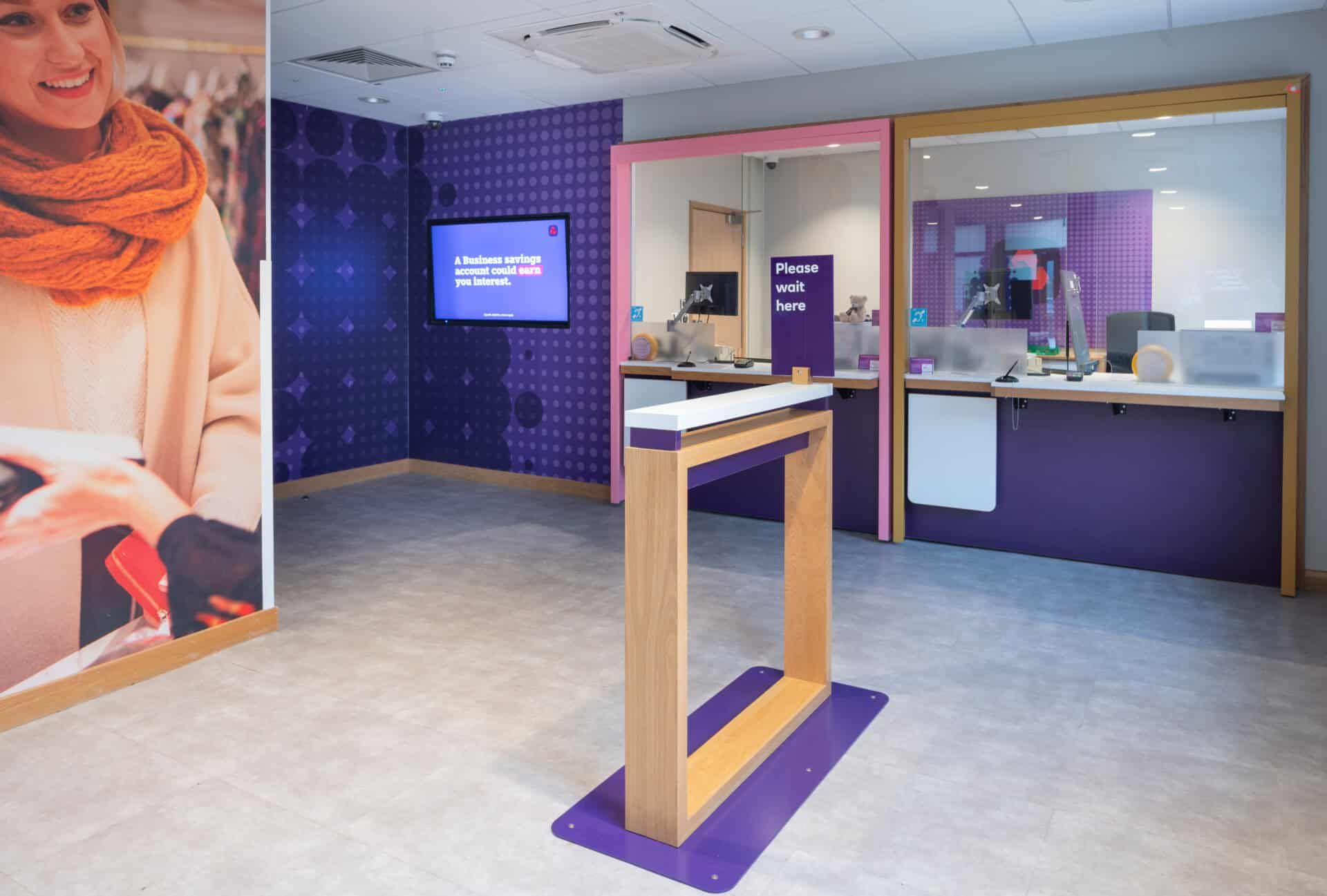
Measuring carbon impacts
We conducted a WLCA for two NatWest fit-out projects, differentiated by the scale of refurbishment: one extensive (Hub) and the other light-touch (Refresh). Our main objectives were quantifying and evaluating embodied and operational carbon impacts, identifying significant sources of carbon emissions (carbon hotspots), and establishing a standard carbon baseline to allow NatWest to track carbon performance and work towards net zero goals. Carbon savings of 45% and 34% were achieved for the Hub and Refresh projects respectively.
A comprehensive and robust data collection process was crucial for WLCA modelling. We engaged with NatWest’s main contractors and Tier 2 suppliers to outline specific data needs, ensuring accurate modelling of embodied carbon. We defined the scope and system boundary to include all life cycle stages (A1-C4), establishing a clear methodology. The reference study period was adapted to 15 years, reflecting the shorter lifespan of retrofit interventions. Compliance with established standards – RICS WLCA, PAS2080:2023 and EN 15978 – maintained accuracy and consistency.
“The RLB sustainability team showed us what holistic good practice looks like when it came to a roadmap towards target net zero. Their knowledge of sustainability within the built environment is very strong, and their innovative approaches have set the bar for our sustainable fit-out practices going forward.”Andrew Taylor, Design Manager, Retail Design, People and Transformation, NatWest Group
Training for 200 suppliers
To improve knowledge of the SKA assessment process and ensure best practice, our experts provided follow-up guidance and delivered training sessions to more than 200 participants across NatWest’s supply chain, including contractors, architects, mechanical and electrical suppliers, project managers and waste contractors.
Our support included reviewing and updating design guides to improve fit-out specifications. This involved identifying products that are non-compliant with SKA criteria and which might add risk to future assessments. One subsequent product switch alone resulted in a 40% carbon saving.
Circular economy principles
A key aspect of the decarbonisation roadmap developed for NatWest is resource management. The incorporation of circular economy principles greatly reduced the carbon footprint associated with fit-out activities. We worked closely with NatWest to develop a coordinated response to closures and refurbishments so it could map, recover, transport and store reusable building materials and furnishings. Another circular intervention was updating the screed specification to one made from 36% recycled content and 100% recyclable.
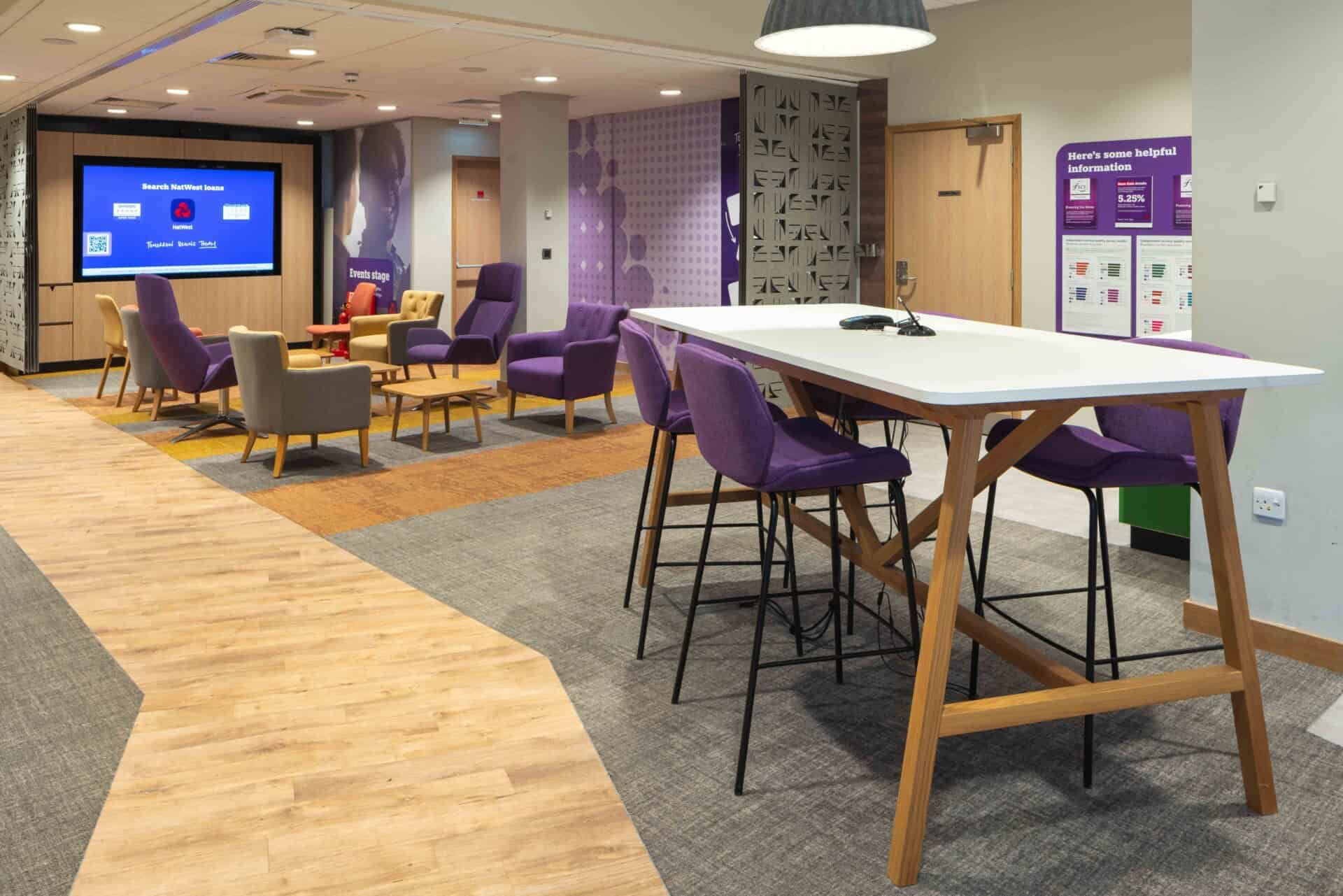
FURTHER INFORMATION:



